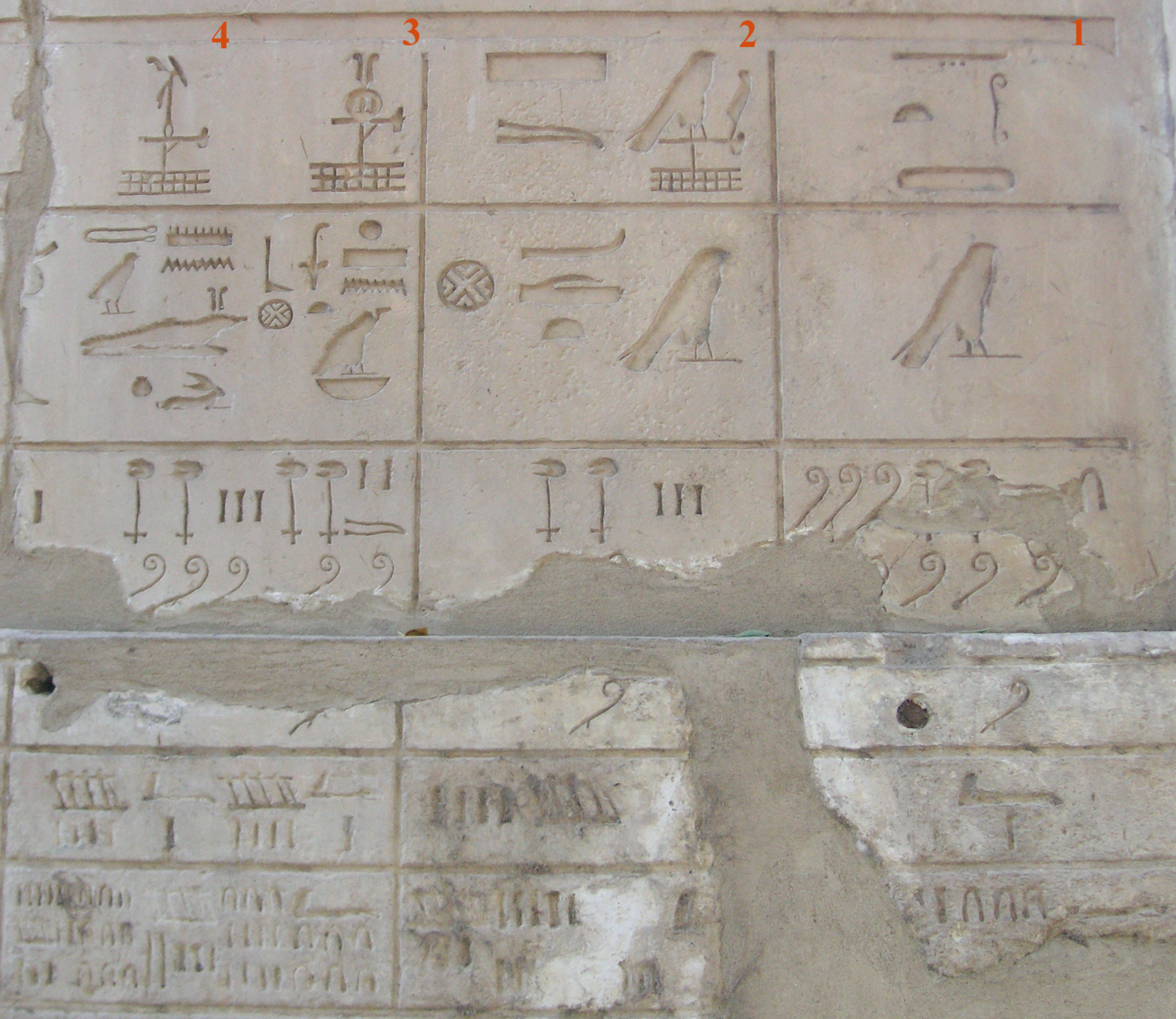Wetjes-Hor on:
[Wikipedia]
[Google]
[Amazon]
 Wetjes-Hor was the second nome of
Wetjes-Hor was the second nome of
 Wetjes-Hor was the second nome of
Wetjes-Hor was the second nome of Upper Egypt
Upper Egypt ( ar, صعيد مصر ', shortened to , , locally: ; ) is the southern portion of Egypt and is composed of the lands on both sides of the Nile that extend upriver from Lower Egypt in the north to Nubia in the south.
In ancient ...
. Its major population center, modern Edfu
Edfu ( egy, bḥdt, ar, إدفو , ; also spelt Idfu, or in modern French as Edfou) is an Egyptian city, located on the west bank of the Nile River between Esna and Aswan, with a population of approximately sixty thousand people. Edfu is the site ...
, was called ''Behdet'' and ''Djeba'' in antiquity. Its Middle Kingdom cemetery is provides much information on the burial practices of commoners during this period. The Old Kingdom
In ancient Egyptian history, the Old Kingdom is the period spanning c. 2700–2200 BC. It is also known as the "Age of the Pyramids" or the "Age of the Pyramid Builders", as it encompasses the reigns of the great pyramid-builders of the Fourth ...
governor, Izi, whose mastaba
A mastaba (, or ), also mastabah, mastabat or pr- djt (meaning "house of stability", " house of eternity" or "eternal house" in Ancient Egyptian), is a type of ancient Egyptian tomb in the form of a flat-roofed, rectangular structure with inwar ...
is found in Edfu's necropolis
A necropolis (plural necropolises, necropoles, necropoleis, necropoli) is a large, designed cemetery with elaborate tomb monuments. The name stems from the Ancient Greek ''nekropolis'', literally meaning "city of the dead".
The term usually im ...
, was worshiped as a minor deity
A deity or god is a supernatural being who is considered divine or sacred. The ''Oxford Dictionary of English'' defines deity as a god or goddess, or anything revered as divine. C. Scott Littleton defines a deity as "a being with powers greate ...
in later times.
Sources
* p. 87-88 Nomes of ancient Egypt {{AncientEgypt-stub